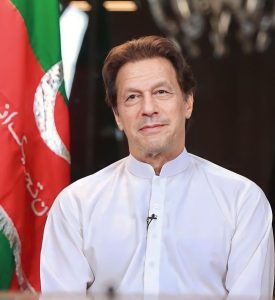Politicians vs Leaders
The terms “politician” and “leader” are often used interchangeably, but there are subtle yet crucial differences between them. While both navigate the often turbulent waters of public life, their motivations, methods, and ultimate goals can diverge significantly. This exploration delves into the distinct realms of politicians and leaders, revealing their contrasting approaches to power, decision-making, and impact on society.
Differentiating between Politicians and Leaders
At first glance, politicians and leaders may seem synonymous, both occupying positions of power and influence. However, their approaches, values, and impacts on society diverge significantly.
Qualities of Politicians
Politicians are often characterized by their short-term focus, appeasement tactics, and populist tendencies, which prioritize immediate gains over long-term sustainability.
Short-term Focus
Politicians frequently prioritize actions that yield quick results or short-term benefits. Their primary concern is often securing re-election or maintaining popularity, leading to decisions that address immediate concerns but neglect future consequences.
Appeasement Tactics
Politicians may resort to appeasement tactics to placate vocal or influential groups, even if it means compromising on principles or broader societal welfare. This approach can perpetuate divisive policies and hinder progress on critical issues.
Populist Tendencies
Politicians may exhibit populist tendencies, catering to popular opinion or exploiting public sentiment for personal or political gain. While appealing to the masses, these actions may lack substantive solutions or overlook the complexities of governance.
Qualities of Leaders
In contrast, leaders demonstrate a visionary outlook, focusing on long-term goals and inspiring positive change in society through their actions and vision.
Visionary Outlook
Leaders possess a clear vision for the future and articulate goals that transcend immediate challenges. They prioritize initiatives that align with their vision, even in the face of resistance or short-term obstacles.
Long-term Goals
Leaders prioritize long-term sustainability over short-term victories, recognizing the importance of initiatives that yield lasting benefits for society. They invest in education, infrastructure, and innovation, laying the groundwork for future generations’ prosperity.
Inspirational Leadership
Leaders inspire others through their integrity, empathy, and resilience. They lead by example, demonstrating courage and conviction in pursuit of their vision, even in the face of adversity. For more interesting information visit our website echonewz.com

Impact on Society
The distinction between politicians and leaders has profound implications for society, shaping the political climate, social progress, and collective well-being.
Political Climate
Politicians’ short-term focus and partisan maneuvering can contribute to polarization and gridlock within political institutions, impeding meaningful dialogue and cooperation. In contrast, leaders bridge divides, seeking common ground and fostering collaboration to address pressing challenges.
Social Progress
Leadership plays a crucial role in driving social progress and advancing equity, justice, and inclusivity. Leaders champion policies that promote equality of opportunity, empower marginalized communities, and address systemic injustices, laying the foundation for a more equitable society.
Case Studies
Examining historical figures and contemporary leaders provides valuable insights into the distinction between politicians and leaders across various contexts and fields.
Historical Figures as Politicians
Throughout history, certain figures have prioritized personal ambition or ideological agendas over the common good, exhibiting traits more akin to politicians than leaders. Their legacies may be tarnished by short-sighted decisions or authoritarian tendencies.
Modern Leaders in Various Fields
In contrast, modern leaders in politics, business, and civil society demonstrate visionary leadership, championing innovative solutions to complex challenges and inspiring others to join their cause. Their ability to mobilize resources, build coalitions, and effect positive change distinguishes them from mere politicians.
Importance of Leadership
In an era marked by uncertainty and rapid change, effective leadership is more crucial than ever for navigating complex global challenges and fostering resilience and adaptation.

Building Trust
Leadership is built on trust, transparency, and accountability, qualities that inspire confidence and facilitate cooperation among diverse stakeholders. Leaders cultivate trust by demonstrating integrity, competence, and a genuine commitment to serving the greater good.
Fostering Unity
Leaders have the power to transcend divisions and unite people around a shared vision and common purpose. By promoting dialogue, empathy, and inclusivity, they bridge differences and forge consensus, leading to more cohesive and resilient communities.
Conclusion
In conclusion, while politicians and leaders may both occupy positions of authority, their approaches, values, and impacts on society diverge significantly. Politicians prioritize short-term gains and often resort to appeasement tactics, whereas leaders demonstrate visionary leadership, focusing on long-term goals and inspiring positive change. As we confront the challenges of the 21st century, cultivating true leadership is essential for building a more equitable, prosperous, and sustainable future.
FAQs
What distinguishes politicians from leaders?
Politicians often prioritize short-term gains and appeasement tactics, while leaders focus on long-term goals and inspire positive change through their vision and actions.
How do politicians’ short-term focus affect decision-making?
Politicians’ short-term focus can lead to decisions that address immediate concerns but neglect long-term consequences, potentially hindering sustainable progress and societal well-being.
What role does trust play in leadership?
Trust is foundational to effective leadership, as leaders must inspire confidence and cooperation among diverse stakeholders by demonstrating integrity, transparency, and accountability.
Can politicians transition into effective leaders?
While some politicians may exhibit leadership qualities, true leadership requires a visionary outlook, a commitment to the greater good, and the ability to inspire positive change beyond partisan interests.
Why is leadership important for social progress?
Leadership drives social progress by championing policies that promote equity, justice, and inclusivity, fostering unity, and addressing systemic injustices to create a more equitable and prosperous society.
